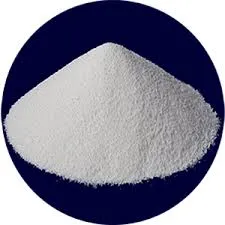- Afrikaans
- Albanian
- Amharic
- Arabic
- Armenian
- Azerbaijani
- Basque
- Belarusian
- Bengali
- Bosnian
- Bulgarian
- Catalan
- Cebuano
- Corsican
- Croatian
- Czech
- Danish
- Dutch
- English
- Esperanto
- Estonian
- Finnish
- French
- Frisian
- Galician
- Georgian
- German
- Greek
- Gujarati
- Haitian Creole
- hausa
- hawaiian
- Hebrew
- Hindi
- Miao
- Hungarian
- Icelandic
- igbo
- Indonesian
- irish
- Italian
- Japanese
- Javanese
- Kannada
- kazakh
- Khmer
- Rwandese
- Korean
- Kurdish
- Kyrgyz
- Lao
- Latin
- Latvian
- Lithuanian
- Luxembourgish
- Macedonian
- Malgashi
- Malay
- Malayalam
- Maltese
- Maori
- Marathi
- Mongolian
- Myanmar
- Nepali
- Norwegian
- Norwegian
- Occitan
- Pashto
- Persian
- Polish
- Portuguese
- Punjabi
- Romanian
- Russian
- Samoan
- Scottish Gaelic
- Serbian
- Sesotho
- Shona
- Sindhi
- Sinhala
- Slovak
- Slovenian
- Somali
- Spanish
- Sundanese
- Swahili
- Swedish
- Tagalog
- Tajik
- Tamil
- Tatar
- Telugu
- Thai
- Turkish
- Turkmen
- Ukrainian
- Urdu
- Uighur
- Uzbek
- Vietnamese
- Welsh
- Bantu
- Yiddish
- Yoruba
- Zulu
10 月 . 31, 2024 21:13 Back to list
Understanding the Importance of Animal Nutrition for Optimal Health and Growth
The Importance of Animal Nutrition
Animal nutrition is a crucial aspect of agriculture and animal husbandry that significantly impacts the health, productivity, and welfare of livestock. Understanding the nutritional needs of animals is essential for maximizing growth, reproduction, and overall performance while ensuring the sustainability of farming practices.
At its core, animal nutrition involves providing essential nutrients to animals in adequate amounts
. These nutrients include macronutrients—proteins, fats, and carbohydrates—and micronutrients such as vitamins and minerals. Each nutrient plays a specific role in the physiological functions of an animal. For instance, proteins are vital for growth, tissue repair, and enzyme production, while carbohydrates provide energy for daily activities.Different species of animals have varying nutritional requirements based on their age, species, and purpose. For example, a growing calf requires a different nutrient profile compared to a lactating dairy cow. Similarly, poultry has unique dietary needs to support egg production and optimal health. Therefore, formulating the right diet is essential for each type of animal.
The formulation of animal diets often relies on feed ingredients available in a particular region. Common feedstuffs include grains, legumes, forages, and by-products. The use of these ingredients not only addresses the nutritional requirements but also considers economic factors, availability, and sustainability. For instance, incorporating local feed resources can reduce reliance on imported feeds, supporting local economies and minimizing environmental impact.
animal nutrition

Moreover, proper animal nutrition plays a significant role in animal welfare. Animals that receive balanced diets are less prone to diseases, exhibit better behavior, and have improved overall health. This, in turn, leads to more humane farming practices, as healthier animals require fewer medical interventions and contribute to a more sustainable food production system.
In recent years, there has been a growing focus on the nutritional management of animals in relation to environmental sustainability. Livestock production is a significant contributor to greenhouse gas emissions, so finding ways to improve feed efficiency is paramount. Feeding animals high-quality diets can enhance feed conversion ratios, meaning that animals convert feed into body mass more effectively, reducing resource use and emissions per unit of meat or milk produced.
Furthermore, advances in nutritional science, such as the use of feed additives and supplements, are being explored to optimize animal health and performance. Probiotics, prebiotics, and enzymes are examples of feed additives that can promote gut health, enhance nutrient absorption, and improve overall animal productivity.
In conclusion, animal nutrition is a multifaceted and dynamic field that impacts not just the animals themselves but also the broader agricultural landscape. By prioritizing proper nutrition, farmers can ensure the health and well-being of their livestock while contributing to sustainable food production. As the global demand for animal products continues to rise, the importance of effective animal nutrition will only become more critical in meeting this challenge while promoting environmental stewardship and animal welfare.
-
The Power of Radix Isatidis Extract for Your Health and Wellness
NewsOct.29,2024
-
Neomycin Sulfate Soluble Powder: A Versatile Solution for Pet Health
NewsOct.29,2024
-
Lincomycin Hydrochloride Soluble Powder – The Essential Solution
NewsOct.29,2024
-
Garamycin Gentamicin Sulfate for Effective Infection Control
NewsOct.29,2024
-
Doxycycline Hyclate Soluble Powder: Your Antibiotic Needs
NewsOct.29,2024
-
Tilmicosin Premix: The Ultimate Solution for Poultry Health
NewsOct.29,2024













